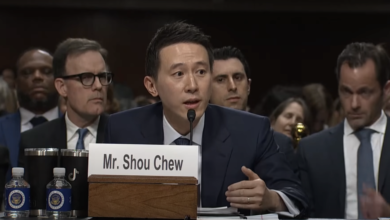Jeff Bezos announced yesterday he will be riding along on the first crewed flight of the New Shepard, a rocket produced by the Bezos-owned corporation Blue Origin, on July 20. Blue Origin is doing everything to claim the legacy of the first space race — from scheduling this launch on the anniversary of the Apollo 11 moon landing to the names of the rocket “New Shepard” after Alan Shepard, the first American to reach space. In addition to being yet another obscene display of wealth by a man who has so much while so many have nothing, Bezos’ adventure also highlights just how different the new space race is shaping up to be.
Public funding, private profit
Over the past decade, the United States has shifted dramatically away from state-run spaceflight. In 2010, just before the last flight of the Space Shuttle in 2011, NASA began the Commercial Crew program. This program led to immense government aid to private launch services. Currently SpaceX’s Crew Dragon has flown two missions to the International Space Station, however Blue Origin’s New Shepard and Boeing’s Starliner are in the last stages of testing.
Announced in 2020, the Artemis Program aims to return U.S. astronauts to the moon this decade. The Artemis Accords, released by NASA in October 2020, outline the rules of engagement with the Artemis Program and in essence the U.S. government’s vision of space law moving forward: normalizing the privatization and militarization of both the Moon and space beyond and maintaining the unparalleled dominance exerted by the United States in space since the fall of the Soviet Union.
Additionally, the legal loopholes exploited by the Artemis Accords provide for the normalization of private resource extraction as it does not technically violate the Outer Space Treaty, a document drafted in the late 1960s at a time when private spaceflight was unimaginable. As such, the OST only vaguely addresses private interests. Under the Outer Space Treaty and the Artemis Accords, state owned or state-run space programs like China’s, as well as Russia’s Roscosmos, and even many elements of the European Space Agency, would be effectively barred from resource extraction and utilization while U.S.-based space companies like SpaceX, Blue Origin and Boeing would be able to profit from the resources of the moon, asteroids and the solar system at large.
These same companies are not simply concerned about monopolizing space resources. More immediately, it is public funding that concerns them. When NASA awarded SpaceX a nearly 3 billion dollar contract to build the lunar lander for the Artemis Program in April, Blue Origin and the other companies rejected for the bid were enraged. Sen. Maria Cantwell of Washington, where Blue Origin is based, added an amendment to the ominously-named Endless Frontiers Act which would give another 10 billion to NASA for additional contracts. This seems likely to pass despite the intervention of Sen. Bernie Sanders.
New Cold War
On the same day as Bezos’ announcement, Dmitry Rogozin, head of the Russian space agency Roscosmos, asserted that Russia would withdraw from the International Space Station project by 2025 if sanctions on its space sector were not removed. Russia plans to move forward with their own space station, but on March 9 released a memorandum of understanding with China, pledging cooperation on Lunar development through the 2030s and beyond. This project is “open to all interested countries and international partners,” according to the memorandum.
One of those main potential partners is the People’s Republic of China, which has been unilaterally excluded from the International Space Station by the United States, despite multiple attempts to join and even support from the European Space Agency. This by necessity put China on an independent path for space development. In early May, China launched the core module of Tianhe, a new space station. This launch sent the U.S. media into a frenzy with reports like “Out-of-control Chinese rocket could crash land on Earth — and Philly may be in its path” and “Heads Up! A Used Chinese Rocket Is Tumbling Back to Earth This Weekend” covered in local and national news for several days.
Early this year, debris from a SpaceX Falcon 9 launch crashed back to earth over the Pacific Northwest and was reported on in The Verge under the headline: “SpaceX rocket debris creates a fantastic light show in the Pacific Northwest sky.” Coverage of the same debris crashing into a farm in Washington state continued without panic, “Most rocket parts burn up in the atmosphere. This one wound up in someone’s farm.” The same outlet however joined in on the anti-China panic on May 9, reporting “An out-of-control Chinese rocket has re-entered Earth’s atmosphere” after the Long March 5B booster burnt up over the Indian Ocean.
This is also not the first media panic about supposedly unsafe Chinese rocket launches. Since the late 1990s western media has reported repeatedly on other debris crashes, failed launches, and other setbacks to the Chinese space program — always portraying the Chinese Space Agency as ambitious but inept. The narrative began to shift over the past several years as China’s space program has steadily developed its capacity. “Reckless behavior provides China with economic competitive advantages in space launch” SpaceNews reported in 2019. Now, China is set to launch a crew of three astronauts to it’s space station on June 17 for a 90-day mission on the new space station.
As Liberation News has reported before, the Pentagon is determined to dominate space and use it to control the planet. As this U.S.-driven arms and technology race continues, all of today’s most powerful states and armed forces are becoming more and more dependent on their space-based assets. And just as is the case for more traditional forms of militarism, U.S. corporations like Bezos’ Blue Origin are seeking to cash in on a grave danger to all people.
Feature photo: A 2019 Blue Origin rocket launch. Credit — NASA Flight Opportunities






